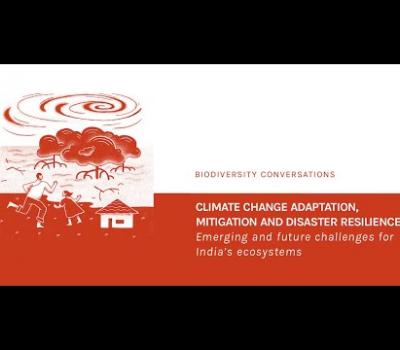Climate Change
This programme is oriented towards quantifying and mapping the role of India’s forests in regulating monsoonal rain through recycled evapotranspiration, regulation of floods and reduced sedimentation of irrigation dams. The programme also seeks to examine the role of forests and forest restoration in India’s water and carbon security for adaptation to and mitigation of climate change as well as disaster risk reduction.











